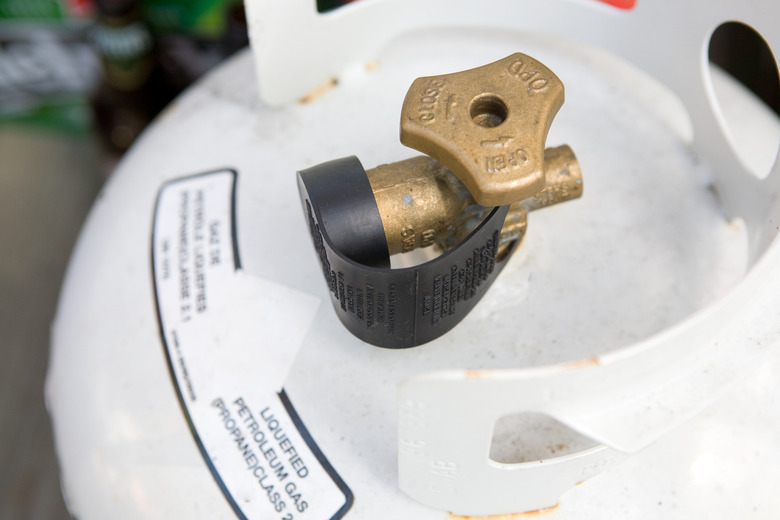Can I Use Copper Lines With Propane Gas?
Many households, especially in rural areas, use propane as a main home heating energy source. Typical propane gas tanks are located outside, either installed on top of a concrete foundation or placed in an underground hole. However, the tank must have a service line extending from the stored propane to the house for a safe and constant energy supply. Many materials can be chosen for the line's composition, including copper.
Copper Benefits
Copper Benefits
Copper offers a relatively inexpensive material for service line composition. Copper has the ability to be formed in long service line coils. This flexible copper can easily install around obstacles between the propane tank and the house, as opposed to black pipe which requires 90-degree turns for maneuvering around an obstruction. As a result, installation and material costs decrease, making copper an appealing material choice.
Copper Line Considerations
Copper Line Considerations
In 1999, the International Association of Plumbing & Mechanical Officials (IAPMO) designated that copper tubing and fittings are allowable for gas-distribution systems, including propane. However, some individual states still have limitations on copper use for gas distribution tubing. Consumers should verify an individual state's laws with a certified propane professional before installing copper tubing.
Copper Limitations
Copper Limitations
Copper is typically corrosion resistant, but can develop problems if placed in specific soil types underground. Soils high in sulfate and chloride levels, deemed aggressive soils, can chemically react with the copper tubing surface. A catalyst for the aggressive soil corrosion is water. Water within the soil, that cannot drain properly, provides a corrosion-friendly area for copper tubing. Installers must survey the installation site before laying any copper tubing, ensuring that the underground soil is stable for long term copper lines.
Copper Line Protective Measures
Copper Line Protective Measures
Propane service lines must be installed at least 12 to 18 inches deep underground, reports Propane 101. This prevents damage to the line from vehicles or animals crushing the tubular shape, causing possible leaks. Copper lines can have protective tape or PVC (Polyvinyl Chloride) sheathed around the tube's exterior for extra protection against underground corrosion.
Mixing Metals
Mixing Metals
Copper is a metal that has Galvanic properties, developing corrosion when touching other metals, such as iron or steel. Copper lines must not mix with other metal line tubing. Installers should install pure and complete copper lines between the propane tank and the home.
Warning
Warning
Propane leaks can easily cause a fire hazard. Shut off the propane tank at its flow valve connection. Contact a propane service provider immediately for repairing the leak. Do not attempt to access the leak without a professional's guidance.
